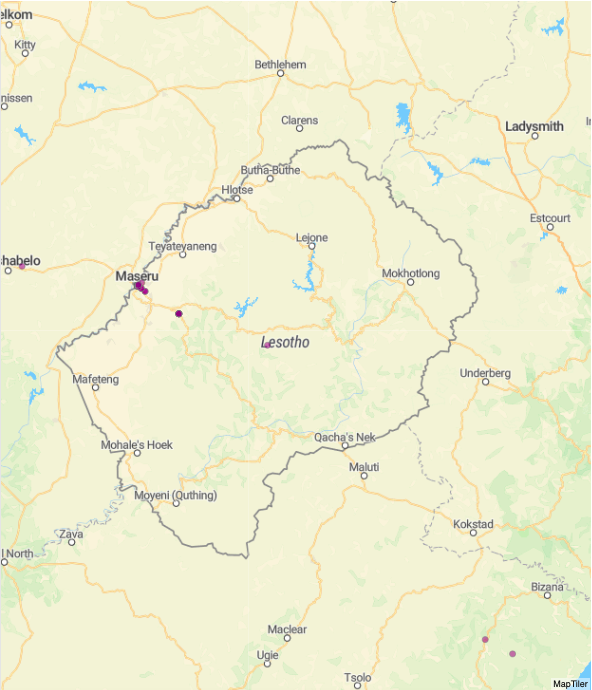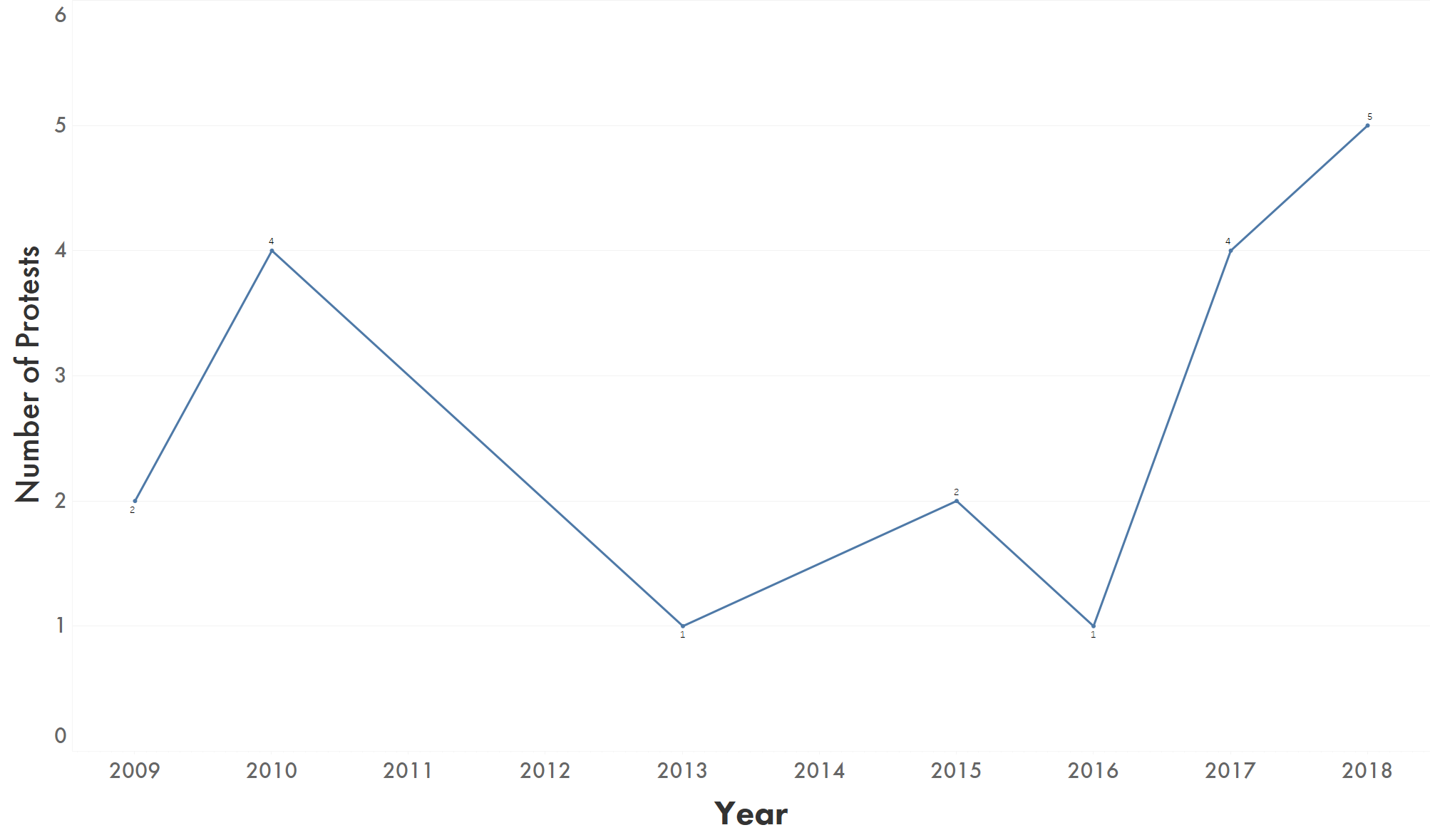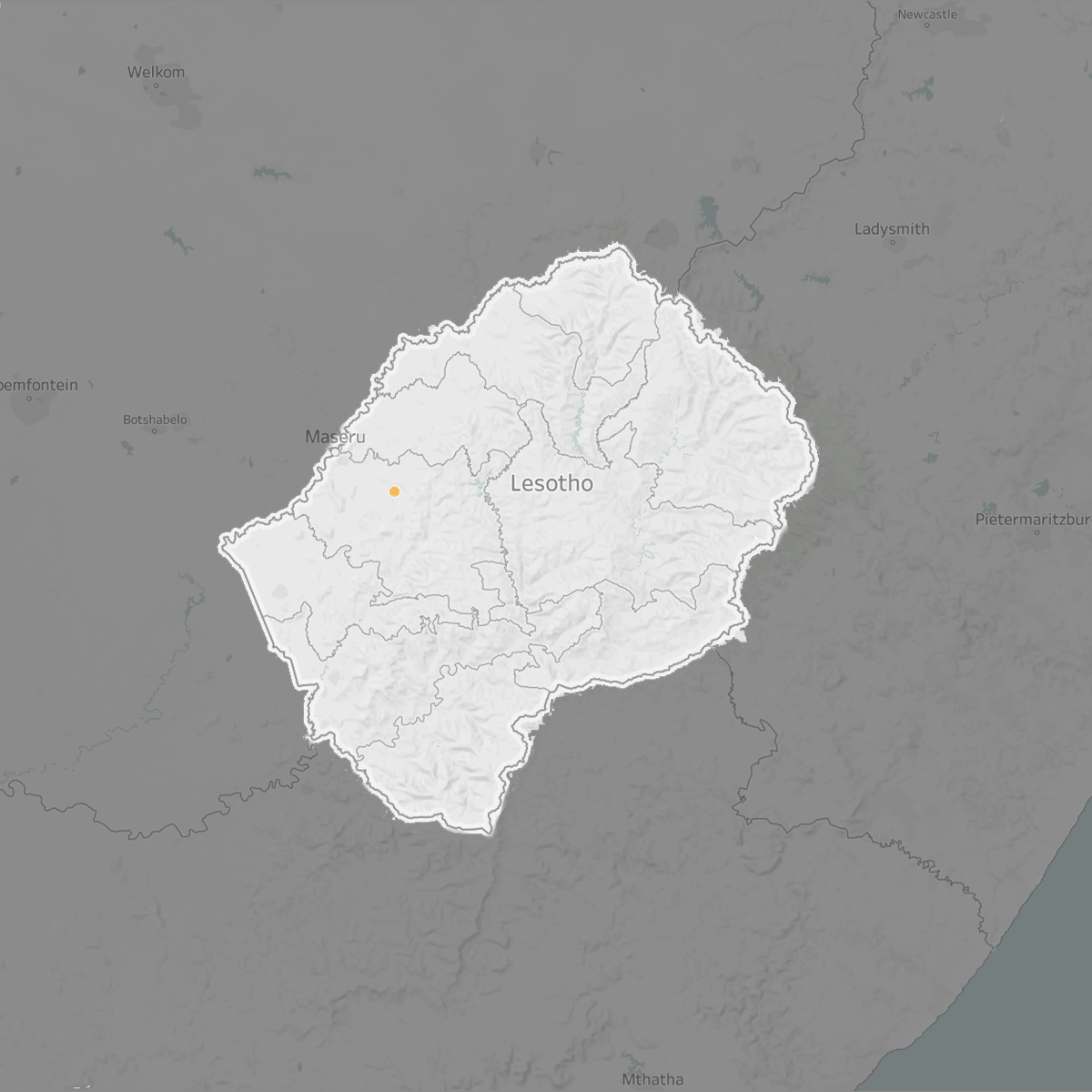Lesotho
Lesotho is a landlocked country entirely surrounded by South Africa. 2 million people live in Lesotho; 250,000 people live in Maseru, the capital city. Lesotho was a kingdom formed in the 19th century when the Basotho ethnic group took refuge in the mountains, fleeing violence from the Zulus and Boers. Almost all of Lesotho's population is ethnically Basothos, an ethnicity that has several sub-groups. Lesotho has always had a close political relationship with South Africa. During the colonial era, South Africa tried to incorporate successfully resisted, and in 1966 Leosthos established itself as a constitutional monarchy. Chief Leabua Jonathan and the Basotho National Party (BNP) won the first election. Jonathan and his party were immediately in conflict with the King, Moshoeshoe II. In 1970 Jonathan suspended the constitution, sent the king to exile, and arrested opposing politicians. By 1974 the BCP faced an uprising from Lesotho National Army took place and failed. In 1986 Jonathan was overthrown, and King Moshoeshoe was re-established. In 1990 he was exiled again by the army and his son King Letsie III who was removed from power by a coup in 1991. Elections occurred in 1993, which were won by the BCP and Ntsu Mokhehle, who reinstalled Moshoeshoe - who died in power in 1996; and was again succeeded by Letsie. The BCP fell from power in 1997 after Mokhele quit to form the Lesotho Congress for Democracy; The LCD won control in 1988, taking 78 out of the 79 seats despite winning only 61% of the vote. This resulted in riots. The LCD maintained power until 2012, when a peaceful transfer of power to the All Basotho Convention (ABC) party occurred. Thomas Thabane of the ABC party took power. In 2014 he suspended the parliament. A military coup sent him fleeing to South Africa; he returned in February 2015 for elections, which he lost. A Democratic Congress put Mosisili in power.

DATA VISUALIZATIONS


PROTESTS
Lesotho-August-2018
, Maseru
The Lesotho Teacher’s Association (LAT), Lesotho Teachers Trade Union (LTTU) and Lesotho Schools Principals Association (LeSPA) embark on a strike to demand that the government increase wages and improve working conditions. (Primary Source)
Lesotho-September-2017
Roma, National University of Lesotho (NUL)
Students protest non-payment of allowances. (Primary Source)
Lesotho-October-2010
Roma, National University of Lesotho
Students protest non-payment of allowances. (Primary Source)
Lesotho-August-2018
Roma, National University of Lesotho
Students go on rampage on the university's campus. (Primary Source)
Lesotho-August-2018
Roma, National University of Lesotho
Student protest the delayed disbursement of student allowances. This protest caused the suspension of a student leader. (Primary Source)
Lesotho-October-2009
Roma, National University of Lesotho
Students protest non-payment of allowances (Primary Source)
Lesotho-October-2009
Roma, National University of Lesotho
Students protest to demand payment of allowances. (Primary Source)
Lesotho-March-2017
Roma, National University of Lesotho
Students protest the government's decision to not pay the full tuition fees for students. (Primary Source)
Lesotho-April-2013
Roma, National University of Lesotho
Students attack a student leader for not leading a demonstration and 'betraying the cause.' (Primary Source)
Lesotho-February-2010
Maseru, Lesotho Agricultural College
Lesotho National Union of Student held a protest in solidarity with a student who was killed by security operatives. There was a low turnout. (Primary Source)
Lesotho-January-2018
Maseru, National Health Training College (NHTC)
Students protest insecurity on campus. (Primary Source)
Lesotho-February-2015
Maseru, Lerotholi polytechnic
Students protest the late issuance of National Manpower Development Secretariat (NMDS) allowances to some of the students. (Primary Source)
Lesotho-April-2010
Maseru, Limkokwing University of Creative Technology
Students protest 'poor management and lack of basic services.' (Primary Source)
Lesotho-August-2018
Maseru, National Health Training College (NHTC)
Student protest a 136% increase in school fees. (Primary Source)
Lesotho-February-2015
Maseru, Lesotho College of Education
Students protest the non-provision of allowances (Primary Source)
Lesotho-April-2017
Maseru, National University of Lesotho & Lesotho College of Education
Students plan to protest if their tuition fees are not paid by the government. (Primary Source)
Lesotho-November-2010
Maseru, Limkokwing University of Creative Technology
Students protest the expulsion of a student leader. (Primary Source)
Lesotho-September-2016
Maseru, National University of Lesotho
Students protest late payment of their allowances. (Primary Source)
Lesotho-September-2017
Maseru, Lesotho Agricultural College (LAC)
Students protest mismanagement and poor school quality. (Primary Source)